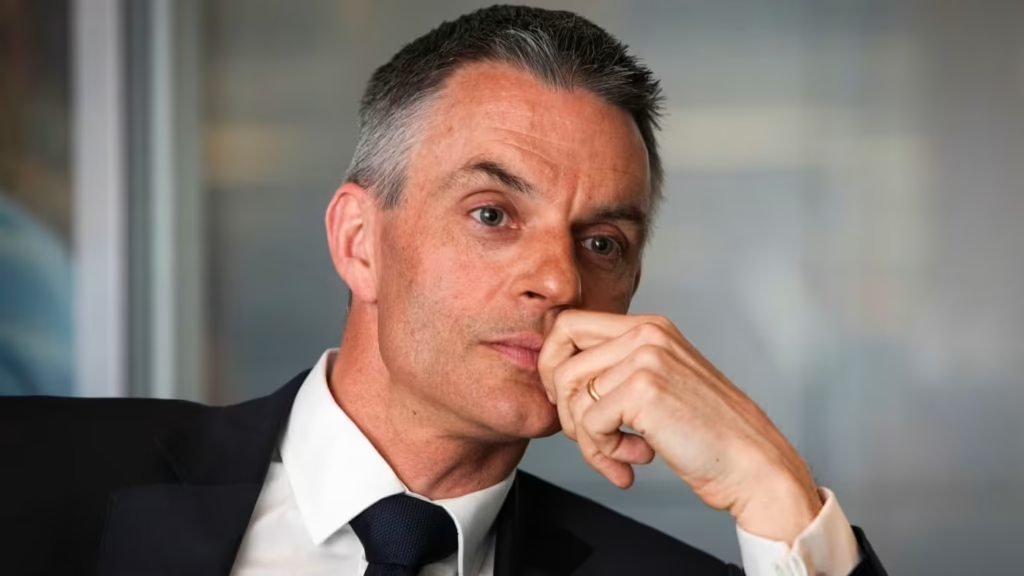BBC Director-General Tim Davie has announced his resignation after a turbulent week for the national broadcaster, which faced allegations of editorial misconduct and political bias.
His departure marks the end of a five-year tenure that saw the BBC struggle to maintain public trust while navigating high-profile scandals and political scrutiny.

BBC News CEO Deborah Turness also confirmed her resignation, intensifying the leadership crisis within one of the world’s most respected broadcasters.
Panorama Editing Controversy Sparks Outrage
The resignations follow allegations that a Panorama documentary had doctored footage of former U.S. President Donald Trump to suggest he incited violence, triggering a wave of backlash.
The claims prompted immediate condemnation from political figures in both the U.K. and U.S., who accused the BBC of breaching impartiality guidelines.
The network’s editorial integrity had already been under pressure due to criticism of its Israel-Gaza war coverage and handling of gender identity issues.

Davie Admits to Mistakes, Defends BBC’s Mission
In his resignation statement, Mr Davie acknowledged that “mistakes” were made under his leadership but insisted the BBC continued to deliver for its audiences worldwide.
“I have been reflecting on the very intense personal and professional demands of managing this role over many years in these febrile times,” he said.
He stressed the need for the broadcaster to remain “open, transparent and accountable,” while noting that public debate about the BBC’s role had “contributed to” his decision.
Mr Davie also said he wanted to give his successor enough time to shape the BBC’s direction ahead of the next Royal Charter renewal period.
‘Teflon Tim’ Leaves Behind a Divided Legacy
A former Conservative Party member, Davie first joined the BBC in 2005 as Director of Marketing, Communications and Audiences, before taking the top post in 2020.
Nicknamed “Teflon Tim” for surviving multiple crises, he faced controversies involving high-profile presenters such as Huw Edwards and Gary Lineker.
His time in charge coincided with deep institutional challenges, including debates over the licence fee, accusations of bias, and the shift to digital-first broadcasting.
BBC Chairman Praises ‘Outstanding’ Leadership
BBC Chairman Samir Shah called it “a sad day for the BBC,” praising Davie’s leadership and commitment to public service journalism.
“Tim has propelled the BBC forward with determination, single-mindedness and foresight,” Shah said, noting the board’s full support for Davie throughout his tenure.
“The transformation of the BBC to meet the challenges in a world of unprecedented change and competition is well underway,” he added.
The board will begin the process of appointing a new Director-General, with Davie staying on in an interim capacity.

Deborah Turness Also Steps Down
Deborah Turness, who became BBC News CEO in 2022 after leading ITN and ITV News, admitted that the Panorama controversy had caused serious reputational damage.
“The buck stops with me,” she said. “While mistakes have been made, I want to be absolutely clear that recent allegations that BBC News is institutionally biased are wrong.”
Turness, once lauded as a reform-minded executive, is leaving just months before a planned newsroom restructuring intended to boost transparency and trust.
Crisis of Confidence and Calls for Review
Media analysts say the dual resignations reflect a wider crisis of confidence at the BBC, with the corporation under growing pressure to rebuild audience trust.
Lawmakers are now calling for an independent review into the BBC’s editorial standards, as the broadcaster faces one of its most critical crossroads in decades.
Editing by M10News UK Desk | Contact: newsdesk@m10news.com
© 2025 M10News. All rights reserved. Unauthorised reproduction is prohibited.


